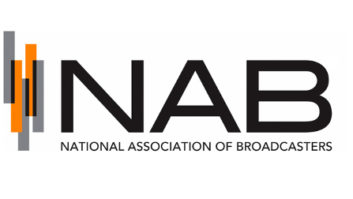NAB has come out with guns blazing against efforts by low-power FM proponents to persuade the FCC to approve “unfettered access to second-adjacent channels” as well as approve power levels of up to 250 watts for LPFMs.
The trade association’s position has been that LPFMs should be granted waivers to operate on the second-adjacent channel of a full-power FM only in very limited circumstances. Educational Media Foundation and NPR agree on this point.
Now, NAB writes in comments to the FCC, granting those waivers so that LPFMs could operate on second-adjacent channels “in such an expansive manner” would “upend Congress’ carefully drawn balance” between the interests of both LPFMs and full-power FMs.
Language in the Local Community Radio Act states that second-adjacent waivers may only be granted when an LPFM can prove the operation would not cause interference to any authorized radio service, according to NAB. “Against all logic, commission precedent, and statutory provisions, LPFM commenters also ask for approval of second-adjacent channel waivers even if a full-service FM station must accept some measure of interference and even if a full-spaced, third-adjacent channel is available,” writes NAB in reply comments that were due Monday to Docket 99-25.
NAB goes on to write that many LPFMs, if they are forced to stop operations due to interference complaints, won’t have the engineering expertise to resolve the complaints and restore service. That’s why it’s also vital that the commission to examine every second-adjacent waiver request critically.
The broadcast trade association says waiver applicants should be required to demonstrate “with clear” evidence the proposed operations won’t cause interference to existing full-power stations and provide their engineering documentation to the potentially short-spaced FM so that its personnel can examine the applicant’s engineering demonstration of no interference, writes NAB.
The commission should also consider making the FM station’s affirmation of a waiver request’s engineering showing a precondition of approval.
NAB was equally critical on the issue of a power increase for LPFMs. Low-power service is now 100 watts and proponents have proposed the commission allow power levels of up to 250 watts in some areas. Broadcasters and LPFM advocates reached a “hard-fought compromise” on a 100 watt LPFM service when lawmakers were deliberating LCRA’s interference protection provisions, says NAB.
Authorizing 250 watt LPFMs would increase the interference risks to full-power FMs and undermine the commission’s implementation of LCRA as it makes decisions on how to prioritize LPFMs and FM translators, according to the trade group.
It also calls the LPFM advocates’ proposal to create a new 50 watt LPFM service “belated” and says the FCC should reject that too, since LCRA is based on a 100 watt service and inserting 50 watt stations into crowded urban markets would be technically inefficient “given the large interference contours of such stations compared to their very small service areas.”
Related:











